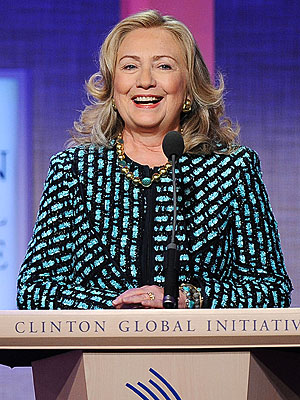NEW YORK (Reuters) - The last two weeks of December are traditionally quiet for stocks, but traders accustomed to a bit of time off are staying close to their mobile devices, thanks to the "fiscal cliff."
Last-minute negotiations in Washington on the so-called fiscal cliff - nearly $600 billion of tax increases and spending cuts set to take effect in January that could cause a sharp slowdown in growth or even a recession - are keeping some traders and analysts from taking Christmas holidays because any deal could have a big impact on markets.
"A lot of firms are saying to their trading desks, 'You can take days off for Christmas, but you are on standby to come in if anything happens.' This is certainly different from previous years, especially around this time of the year when things are supposed to be slowing down," said J.J. Kinahan, chief derivatives strategist at TD Ameritrade in Chicago.
"Next week is going to be a Capitol Hill-driven market."
With talks between President Barack Obama and House Speaker John Boehner at an apparent standstill, it was increasingly likely that Washington will not come up with a deal before January 1.
Gordon Charlop, managing director at Rosenblatt Securities in New York, will also be on standby for the holiday season.
"It's a 'Look guys, let's just rotate and be sensible" type of situation going on," Charlop said.
"We are hopeful there is some resolution down there, but it seems to me they continue to walk that political tightrope... rather than coming up with something."
Despite concerns that the deadline will pass without a deal, the S&P 500 has held its ground with a 12.4 percent gain for the year. For this week, though, the S&P 500 fell 0.3 percent.
BEWARE OF THE WITCH
This coming Friday will mark the last so-called "quadruple witching" day of the year, when contracts for stock options, single stock futures, stock index options and stock index futures all expire. This could make trading more volatile.
"We could see some heavy selling as there is going to be a lot of re-establishing of positions, reallocation of assets before the year-end," Kinahan said.
RETHINKING APPLE
Higher tax rates on capital gains and dividends are part of the automatic tax increases that will go into effect next year, if Congress and the White House don't come up with a solution to avert the fiscal cliff. That possibility could give investors an incentive to unload certain stocks in some tax-related selling by December 31.
Some market participants said tax-related selling may be behind the weaker trend in the stock price of market leader Apple . Apple's stock has lost a quarter of its value since it hit a lifetime high of $705.07 on September 21.
On Friday, the stock fell 3.8 percent to $509.79 after the iPhone 5 got a chilly reception at its debut in China and two analysts cut shipment forecasts. But the stock is still up nearly 26 percent for the year.
"If you owned Apple for a long time, you should be thinking about reallocation as there will be changes in taxes and other regulations next year, although we don't really know which rules to play by yet," Kinahan said.
But one indicator of the market's reduced concern about the fiscal cliff compared with a few weeks ago, is the defense sector, which will be hit hard if the spending cuts take effect. The PHLX Defense Sector Index <.dfx> is up nearly 13 percent for the year, and sits just a few points from its 2012 high.
(Reporting by Angela Moon; Additional reporting by Chuck Mikolajczak; Editing by Jan Paschal)











